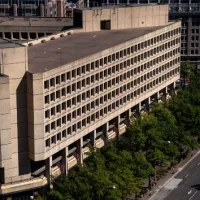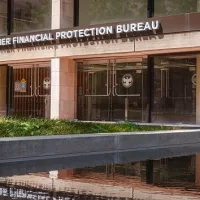
(WASHINGTON) — A federal judge has ordered that the FBI must release some records related to its investigation of President Donald Trump’s handling of presidential records that have been sought under the Freedom of Information Act (FOIA).
In a memorandum opinion issued Monday, Judge Beryl Howell wrote, “Given the current circumstances and legal landscape—including that President Trump now enjoys absolute and presumptive immunity from criminal liability, the government has dismissed criminal charges against President Trump and … and no pending or even contemplated criminal enforcement action within the applicable statute of limitations on the topics of responsive records is at all likely,” the exemptions the FBI cited to block the release of information no longer apply.
Exactly three years ago, on Feb. 10, 2022, Axios reported that New York Times correspondent Maggie Haberman’s then-upcoming book, “Confidence Man,” included a claim that White House staff “periodically discovered wads of printed paper clogging” the presidential toilet.
Trump issued a statement calling the story “another fake story, that I flushed papers and documents down a White House toilet, is categorically untrue and simply made up by a reporter in order to get publicity for a mostly fictitious book.” (A footnote in Howell’s opinion notes, “In August of 2022, Haberman released photos of notes at the bottom of two toilets, and, according to her sources, one photo was allegedly of a White House toilet while the other toilet was overseas.”)
Eight days later, on Feb. 18, 2022, a letter from the National Archives described how President Trump allegedly brought classified records to his personal residence at Mar-a-Lago after losing the 2020 election.
This kicked off a high-stakes legal fight to return the records to government control and would eventually lead to an FBI search of Trump’s residence. What came next were felony charges and a series of stunning legal and political victories that would propel Trump back into office and make the charges he faced effectively disappear.
But as questions swirled around the February 2022 allegations of mishandling of records by Trump, Bloomberg News reporter Jason Leopold filed a FOIA request for six categories of documents. The first five categories pertained to documents stored at Mar-a-Lago, but the sixth category requested information about any records mentioning “Presidential Records from the Trump White House that were destroyed and … allegedly flushed down the toilet.”
The FBI argued they were exempt from responding to the request about the Mar-a-Lago investigation citing possible harm that could come to a prosecution and issued a so-called “Glomar” response to part six of the request, meaning the FBI would not confirm or deny the existence of records about alleged toilet documents.
The term Glomar is a reference to a secret CIA operation during the Cold War to raise a lost Soviet submarine from the ocean floor — when details of the operation began to leak the government provided a response that neither confirmed nor denied the existence of the operation.
Some of the information from the Mar-a-Lago investigation files was eventually released but the sixth category has remained secret.
The landmark Trump immunity case that held a president is presumptively immune from criminal prosecution for official acts and his election victory which brought a dismissal to the case had the effect of wiping away the constraints that had permitted the FBI to withhold records under FOIA.
Howell writes, “somewhat ironically, the constitutional and procedural safeguards attached to the criminal process include significant confidentiality mechanisms,” but for an immune president, such protections, “may simply be unavailable, as it is here.”
“The FBI’s Glomar response is improper, and the categorical withholding of the responsive records contained within the Mar-a-Lago investigative file is insupportable where, as here, no pending law enforcement proceeding exists, or can be reasonably anticipated, and the Mar-a-Lago investigation has been iced,” Howell writes.
No records were released immediately in the case, but the parties must submit a joint status report in 10 days to propose a schedule to conclude this case. It is unclear if the government will seek an appeal to block any further release.
Copyright © 2025, ABC Audio. All rights reserved.















